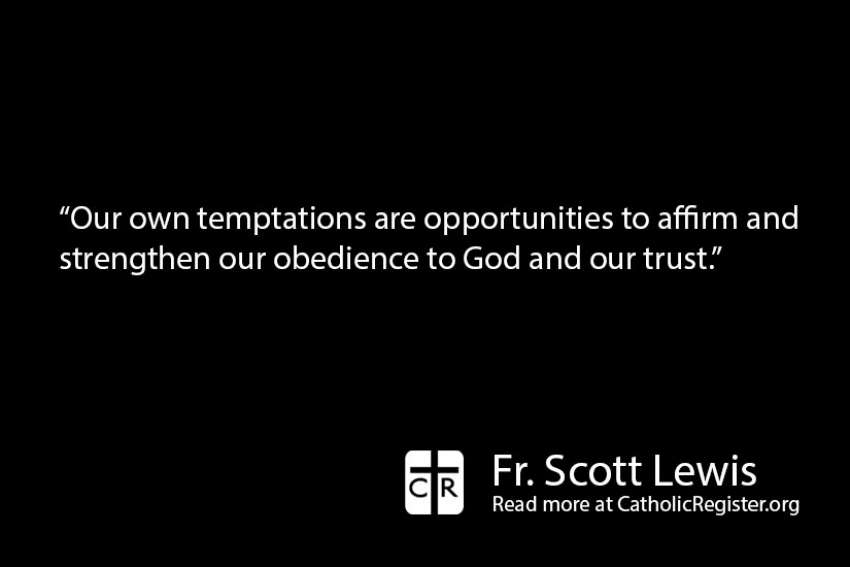We should not interpret it literally, for the story itself does not describe an historical event. Its truth is far more profound than that — it is a parable or allegory of the human condition. The temptation of the garden had nothing to do with sex and does not condemn any gender to servitude or injustice.
Simply put, the story explains that evil and suffering are not God’s doing or intention but the result of human disobedience and sin. Adam and Eve were told that they could eat anything from the garden except the fruit of one tree. The “forbidden fruit” would open their eyes, allowing them to distinguish between good and evil.
We might immediately ask why that is so bad. Given the difficulties of navigating through our confusing world, that would be a welcome and useful skill. But that is now, the story is then — before the fall. They lived in complete harmony and union with God. There was no need to distinguish between good and evil. To have to distinguish between good and evil implies a step — maybe several steps — away from God.
Their relationship with God became an either/or situation — suddenly everything existed in polarity. Gone was the primal unity; they were ruled by division, options, possibilities and choices.
Many saints and mystics, swept up into a state of ecstatic union with God, have uttered statements to the effect that they were beyond good and evil. To the average ear, this is shocking. But they are speaking from their state of union with God. In effect, they were once again in the garden before the fall and one with God. No need for either/or choices!
With their sin, Adam and Eve became aware of their nakedness and hid out of shame. They had asserted their selfhood — a self not in harmony with God — and then became aware of their isolation and separateness. Self is the root of all sin, and this set off a tsunami of sin that swept through the millennia.
God always ran just ahead of the tsunami, preparing a rescue for humanity. Adam and Jesus were the two opposing poles in this drama, for Adam prefigured Christ. Through Christ’s obedience and self-sacrificial love, the primal disobedience was reversed. Humans are now offered the opportunity to begin the long journey home to union with God.
But before that, Jesus had to be tested. And it was a real test, with the possibility of failure.
Jesus faced the same temptations that faced Adam and Eve. He had to trust God totally and be absolutely obedient to the divine will. Notice that all the temptations of the devil involved asserting self: Don’t trust God. God is not reliable. Don’t wait on God, take matters into your own hands and make things happen. If you are the Son of God, then act like it! Make God prove His love and care for you.
These are the temptations of humanity and we wrestle with them daily. They are based on fear, and fear leads to pride. Jesus countered all the devil’s misapplication of scriptural teachings with teachings by which He governed every moment of His life.
The devil failed miserably in his attempts to derail the mission of Jesus, for one who is planted deeply in God and in harmony with the divine will is unassailable. We should not pray for a life devoid of temptations. Our own temptations are opportunities to affirm and strengthen our obedience to God and our trust. In so doing, we advance along the path of our journey home.
At the beginning of our Lenten journey, let us pray for the inner strength and conviction to always make the right choices.


